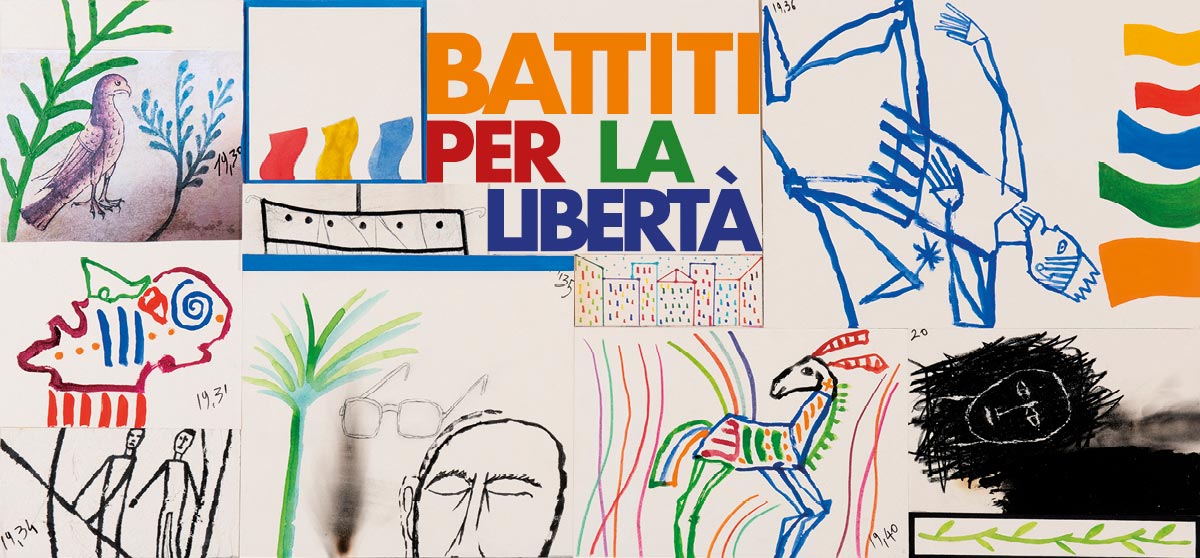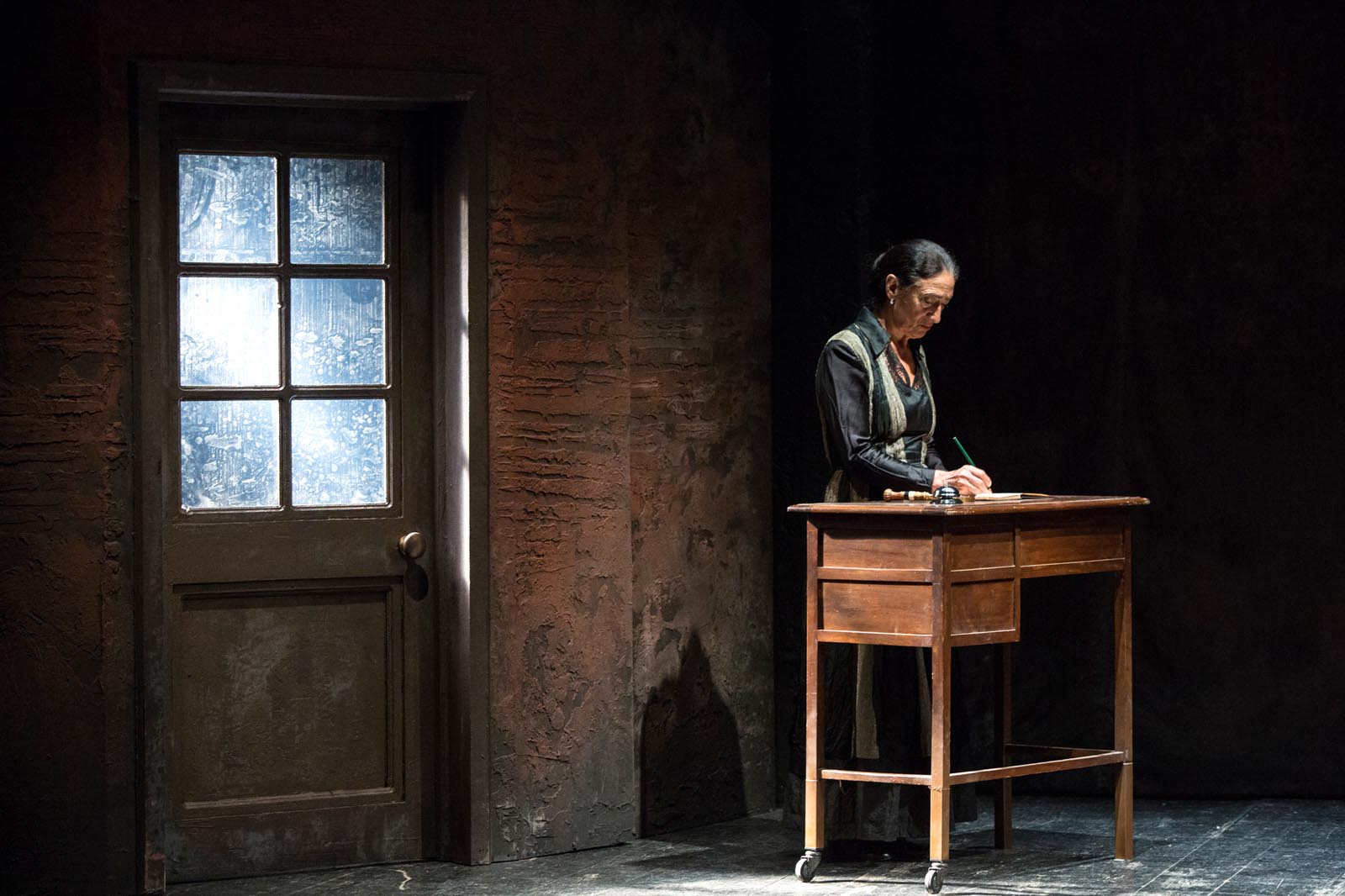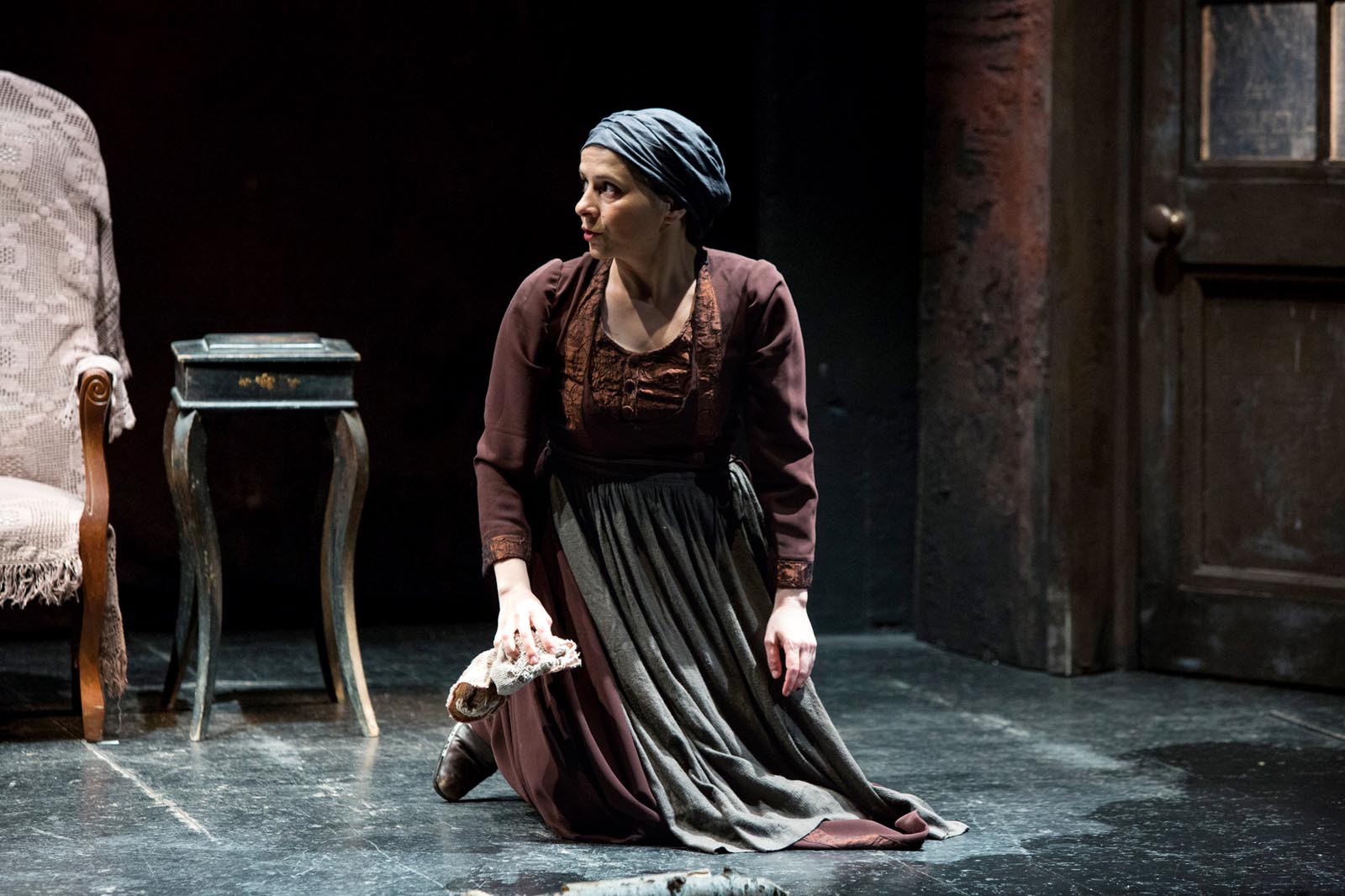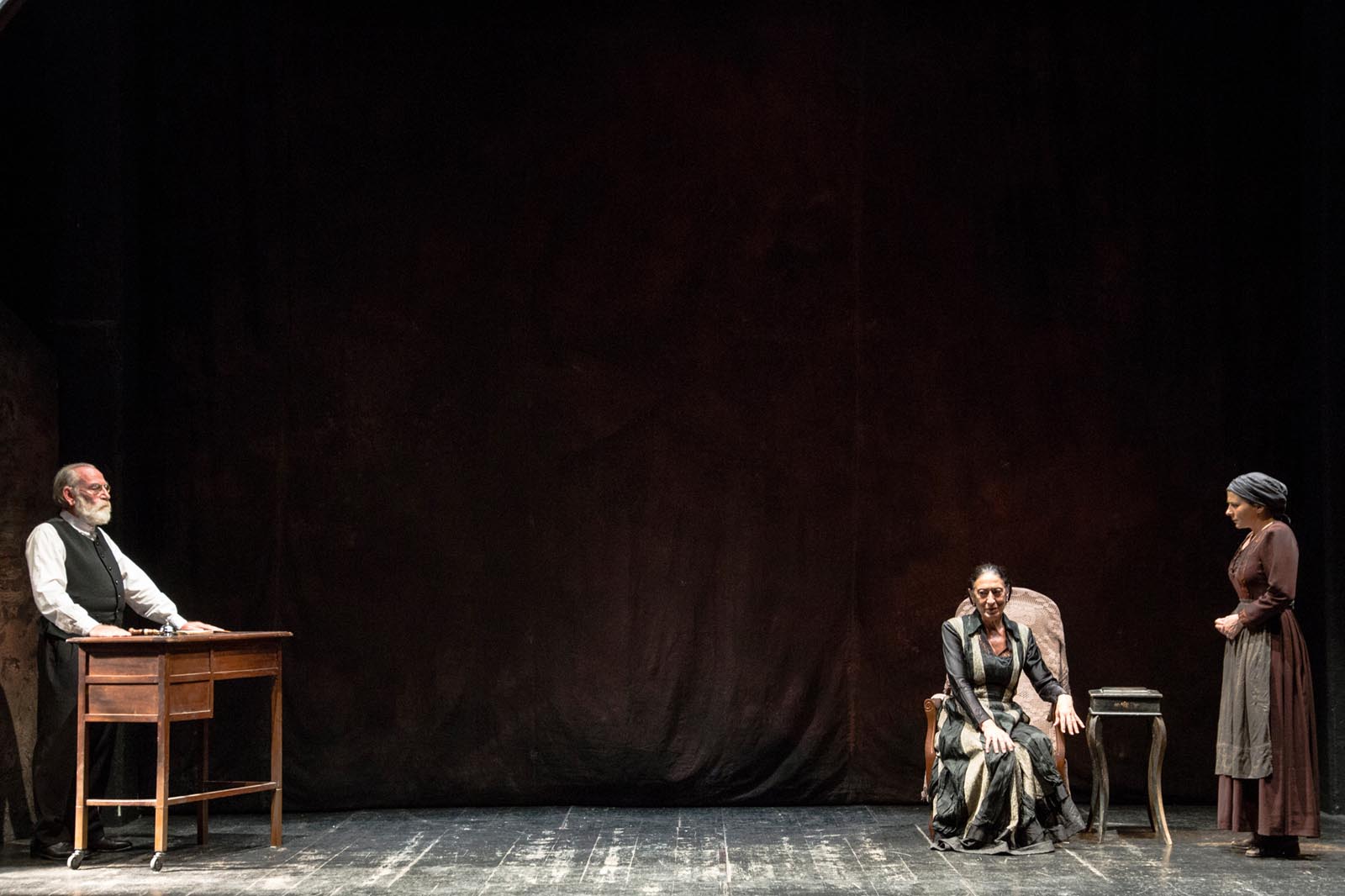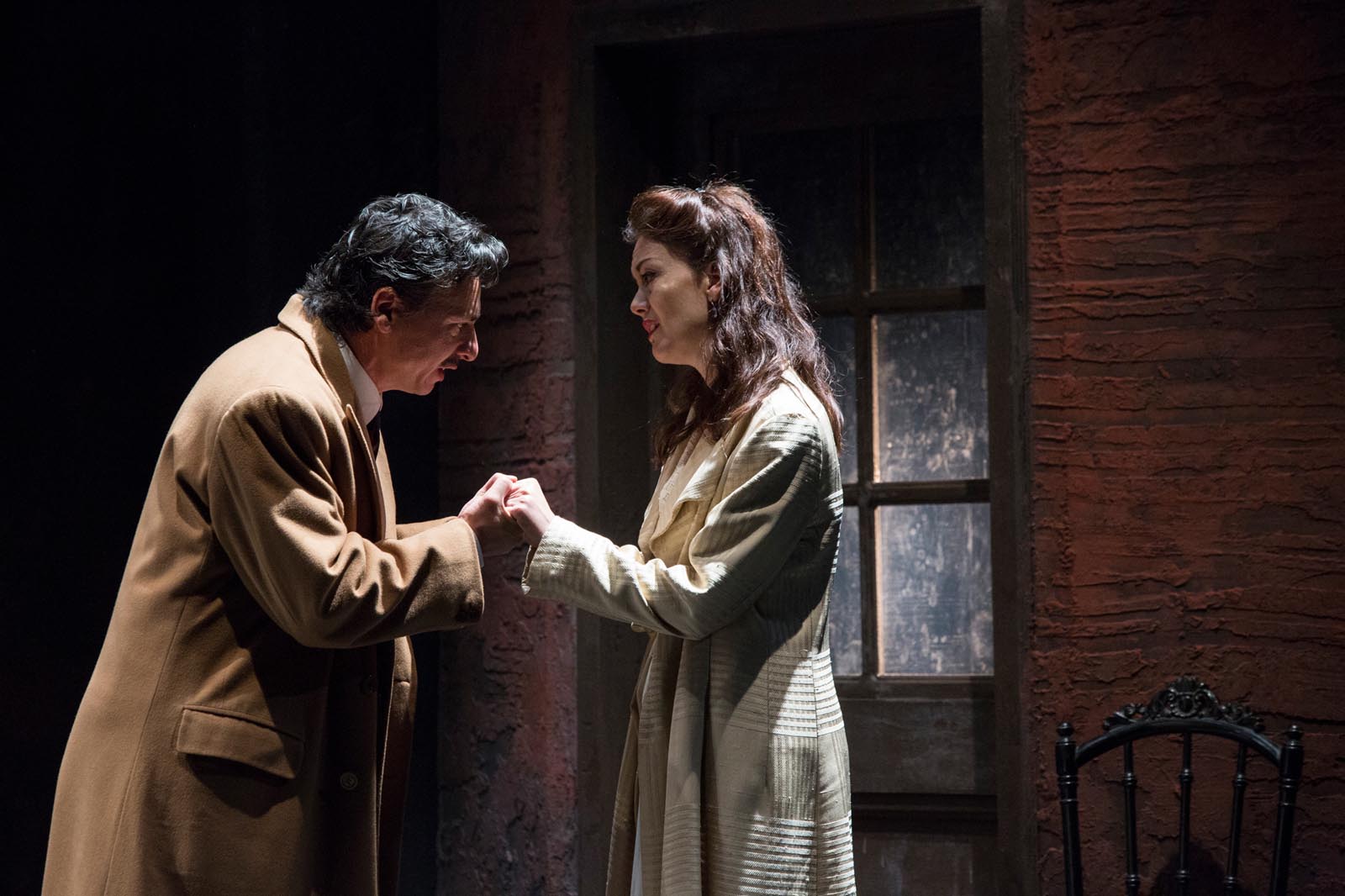Ph Salvatore Pastore
a project by Renato Carpentieri
with Valeria Luchetti, Ilaria Falini, Renato Carpentieri
light design
costumes Annamaria Morelli
produced by Il punto in movimento
the first part will take place at the Grenoble Institute at H 18.00 and the second one at the Galleria Toledo Theater at H 21.00.
To respect the security standards required by the Consulate of the Institut Français in Naples, spectators of the show are asked to bring an identity document and to present themselves half an hour before the start time, to allow the entry procedures .
June 23, 24: two daily appointments
LA CADUTA, Institut Franҫais de Naples, H 18.00
timing 1 H
The first meeting takes place in the late afternoon in the gardens of the Institute of French culture and has as its protagonist Renato Carpentieri who invents a reduction for the scene of the novel “The fall” by A. Camus, with the accompaniment to Federico Odling’s cello. Published in 1956, a year before Camus received the Nobel Prize and four years before his death, “La caduta” is a notable monologue in which a successful former lawyer makes a public confession as a virtuous. He accuses himself for long and wide with irony and sarcasm, of guilt, of weaknesses, of selfishness, multiplying nuances and digressions, to build a mask in which everyone can come to recognize and judge. He is a penitent Judge. But this project, carried forward with tenacity, clashes with the nostalgia of innocence and abandonment.
IL MALINTESO, Galleria Toledo, H 21.00
timing 1 H 30 MIN
In Il malinteso lies the essence of the themes dear to Camus: the loneliness of man, his aspirations to joy, his appeals to love, exile, his mad desire for happiness that is denied him by a God, unrecognizable and indifferent, separated from his creation, the revolt against a universe that is not to his measure. Without forgetting that the revolt (the impulse towards the lands of the sun, which symbolizes the aspiration to reach a Beauty that more and more the grey civilization of the twentieth century rejects to men) must impose limits: first of all respect for human life.
The story is a variant of an old popular legend, of a soldier rich in a big booty on his return from the war and killed by his relatives. Or otherwise the prodigal son: Il malinteso overturns the parable of the Gospels showing the tragic failure of that return. Jan, after many years of distance, returns to his home, from his mother and his sister who do not recognize him and, overwhelmed by a poor and miserable life, end up killing what for them is only a client of their hotel, to rob him. The absurdity of the situation of the characters (in particular of Jan, awkward shake of a destiny that helped to forge) inside this hotel that, stripped of any effect of realism to make it a symbolic place, dark country of the North- Europe, it closes on them like a trap, is highlighted by the same title of the pièce. << All men’s misfortune comes from the fact that they do not use simple language. If the hero of Il Malinteso had said: “Here I am, it is me and I am your son”, dialogue would have been possible, no longer based on nothingness as in the drama (…). What counterbalances the absurd is the community of men fighting against it … >>, writes Camus in his notebooks towards the end of 1945.



